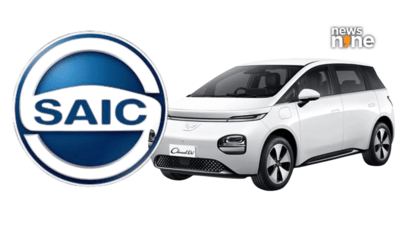
New Delhi: China’s SAIC Motor is preparing to reduce its presence in India, a move that shows how political strain between the two countries is spilling into the automobile industry. According to a Reuters report, the state-owned carmaker plans to slash its 49 percent holding in its joint venture with JSW Group and halt new investment, while continuing to supply technology and products.
The timing is significant. India put strict limits on foreign direct investment from neighboring countries back in 2020 after a deadly border clash. Although Indian and Chinese leaders met last month to ease ties, little has changed for business, and approvals for sensitive deals remain frozen.
Joint venture troubles with JSWSAIC entered India in 2019 under the MG Motor brand, taking over General Motors’ old plant in Gujarat with a capacity of 120,000 cars annually. The idea was to use JSW’s local reach to grow faster and overcome regulatory hurdles. But five people familiar with the matter told Reuters that the partnership hasn’t delivered.
JSW has reportedly offered to buy most of SAIC’s stake, but valuation differences have kept negotiations stuck. While SAIC is pushing for a higher price, JSW is unwilling to match the number. Talks remain open, but no breakthrough has been reported.
Friction beyond politicsIt’s not only geopolitics making things messy. Three sources told Reuters that SAIC was unhappy when JSW opened parallel talks with Chinese rival Chery Automobile. These discussions are for a technology tie-up, not equity, but the prospect of JSW building cars under its own brand with Chery’s help has unsettled the current arrangement.
JSW has long wanted to launch its own vehicles, and if the Chery deal goes through, it could reshape the Indian JV’s dynamics. Chery itself did not respond to Reuters’ request for comment.
Investment hurdles in IndiaSAIC’s challenges go back to 2020 when its $650 million (₹5,525 crore) EV proposal was rejected under a government incentive scheme. Last year, JSW picked up a 35 percent stake in MG Motor India for about $300 million (₹2,550 crore), valuing the business at $1.2 billion (₹10,200 crore). That sale funneled proceeds back to SAIC in China, raising further questions in Delhi about how future investments would be handled.
JSW MG Motor has since filed a $240 million (₹2,040 crore) plan to boost EV manufacturing. Government ministries are still reviewing it, with one sticking point being whether returns on fresh investment would indirectly flow back to China.
How the numbers stack upMG Motor has had some wins. From just 16,500 cars sold in 2019, sales rose to 61,000 units in 2024. Its Windsor EV and Hector SUV helped it become India’s second-largest EV maker after Tata Motors. Yet filings show the company is losing money and struggling with cash flow.
Meanwhile, competition is intensifying. Tesla entered India in July with its EVs, and Suzuki has committed $8 billion (₹68,000 crore) to make India its global electric car hub over the next five to six years. SAIC’s scaling back comes at a time when India’s auto industry is heating up like never before.
What lies aheadSAIC is not exiting India altogether. Sources told Reuters it will continue to provide technology and products to the JSW-led entity. But the dilution of its stake signals a clear retreat from its earlier ambition of making India its largest production base outside China.
As Tesla, Suzuki, Tata, and Hyundai sharpen their EV strategies, SAIC’s diluted role leaves the field open for others to claim more ground.